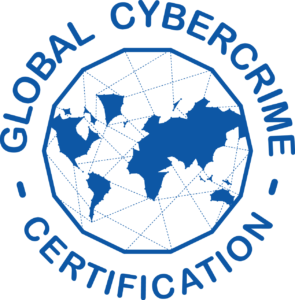
As of 2025, based on the outcomes of the project activities and considering EU policy guidance, the efforts towards recognised academic qualifications are framed into the European Union’s approach to micro-credentials.
ECTEG members from LEA and Academia, together with partners such as the European Commission and CEPOL, are committed to supporting the development, implementation, and recognition of micro-credentials in the training and education provided to LEA Authorities.
Since May 2025, ECTEG has been actively working on a proof-of-concept for micro-credentials for Law Enforcement training, with a focus on Digital Forensics and Cybercrime matters.
In a nutshell, a dozen voluntary ECTEG members from LEAs, academia, the European Commission and CEPOL, are currently collaborating for this first phase of the proof-of-concept. Based on their professional expertise, these volunteers have gathered in small groups to elaborate a set of stackable micro-credentials and develop a bank of related knowledge-check questions that could be used during an exam.
During autumn 2025, they worked on achieving a proof-of-concept proposing the creation of such micro-credentials and a question bank based on the new version of the DFI course. The development phase took place during Q3-Q4 2025, feeding into a draft “Micro-credentials Catalogue”, in which, in 2026, new micro-credentials, addressing other skills and competences for other profiles, will be gradually incorporated.
The work is ongoing and performed in collaboration with CEPOL and the expert group.
Background: The Global Cybercrime Certification project
In 2014, the Training of Trainers (TOT) Project was funded by the European Union and managed by the Universidad Autónoma de Madrid to improve efficiency, cooperation and mutual understanding of the main actors involved in the fight against cybercrime: Law Enforcement Agencies (LEAs) and Prosecutors. One of the goals was to create a framework for the certification of European Cybercrime Investigators and Cybercrime European Prosecutors, to establish the basis for developing a group of professionals who can properly deal with transnational cybercrime problems.

A 2017 European Parliament published resolution deplored the fact that at that time, no EU standards for training and certification existed; acknowledging that future trends in cybercrime require an increasing level of expertise from practitioners; welcoming the fact that existing initiatives such as ECTEG, the Training of Trainers (TOT) Project and the training activities under the EU Policy Cycle framework are already paving the way towards addressing the expertise gap at EU level.
The Global Cybercrime Certification Project, funded by ECTEG, provided an opportunity to implement the work done in the TOT Project, creating an international certification framework based on the Training Competency Framework for Cybercrime (TCF) to enable Law Enforcement Agents and Judicial Authorities to develop their knowledge and skills and to enhance confidence within the criminal justice system of their jurisdiction, as well as international investigations.